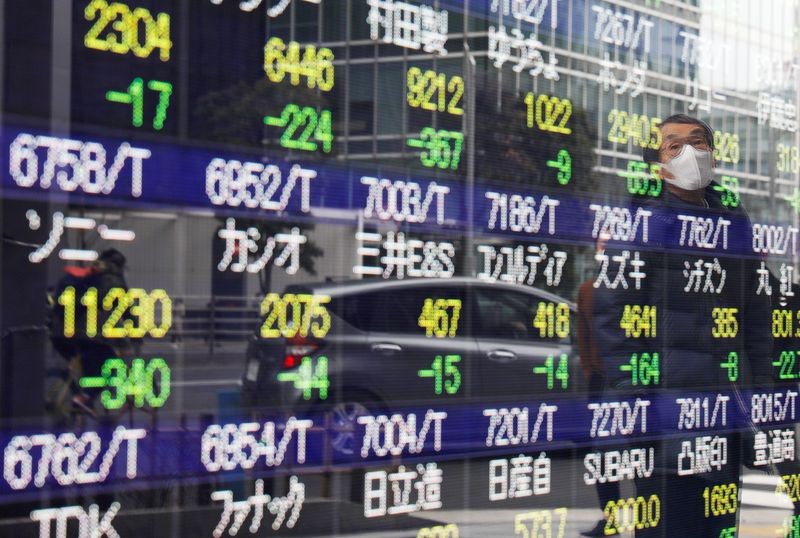Asian stocks rose for a second session as markets shifted focus to key U.S. data this week for more insight into the health of the world's largest economy.
Stocks in the region rose on Monday, following Friday’s 1.5% gain, with benchmarks in Australia, Taiwan and South Korea rising. Shares in Hong Kong were mixed while those in the mainland were little changed. Japanese markets were closed for a holiday.
Calm returned after markets were roiled early last week by concerns that the Federal Reserve was waiting too long to cut interest rates. The Cboe Volatility Index, a gauge of fear on Wall Street, retreated from its highest level since the early days of the Covid-19 pandemic. The yen was slightly weaker against the dollar on Monday.
“The sky is not completely clear yet, but there are several reasons to suggest that relative calm lies ahead,” analysts at Nomura Holdings said in a note, citing easing concerns about a U.S. recession and reduced chances of a hawkish Bank of Japan policy among reasons for optimism.
Trading Engines
The yen rose last week as traders cut bearish bets following the Bank of Japan’s interest rate hike, prompting a negative reaction as investors pulled out of the carry trade. But the Japanese currency ended last week little changed.
The Bank of Japan and the Fed are the biggest variables driving the trade, said Taosha Wang, portfolio manager at Fil Asia Holdings Pte. “I don’t think the market has agreed on a specific forecast yet — either a recession, which we think is excessive, or a soft landing,” she added.
Elsewhere in Asia, traders will focus on Chinese retail sales and industrial production data this week to gauge whether the country's economy is finding momentum.
China is still battling speculators in the bond market, with state banks selling debt to shore up yields. Sovereign bond yields rebounded last week after authorities stepped up their fight against rising bond prices. The economy needs more stimulus as the latest leading indicators point to a loss of recovery momentum midway through the year, according to Bloomberg Economics.
The Reserve Bank of New Zealand will also issue its interest rate decision this week, as the economy shows signs of entering its third recession in less than two years. Australian and New Zealand government bonds were little changed on Monday.
economic recession
Global bond markets calmed down on Friday as concerns about a possible U.S. recession that sparked a rally in Treasuries and a brief market crash faded.
The U.S. consumer price index is expected to rise 0.2% from June on Wednesday for both the headline figure and the so-called core measure that excludes food and energy. However, the reading may not be enough to deter the Federal Reserve from a widely expected interest rate cut next month.
Over the weekend, Federal Reserve Governor Michelle Bowman said she still sees upside risks to inflation and continued strength in the labor market, suggesting she may not be ready to support a rate cut when U.S. central bankers meet in September. Money markets have priced in a rate cut in September and are pricing in about 100 basis points of cuts this year, according to swaps data compiled by Bloomberg.
In commodities, oil rose on Monday after a 4.5% gain last week. Some major U.S. refiners are cutting operations at their facilities this quarter, adding to concerns about a global glut of crude. Gold fell.







































